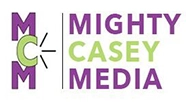The concept of mobile health and mobile medicine is enticing. “There’s an app for that” when applied to managing a chronic condition like diabetes, or navigating cancer treatment, sounds like real 21st century healthcare, doesn’t it?
Tomorrow (Dec. 1, 2011) I’m on a panel that’s part of mHealthCon at Rutgers University, a conference where a plethora of mobile app developers and thought leaders will be talking both the idea and the practical app of mobile in healthcare.
Our panel is self-described as the American Idol judges – I’m Simon, including the scowl potential – and we’re expected to give meaningful and frank feedback to the app developers that are in the session preceding us. Leading the conversation will be my buddy Bob Brooks of WEGO Health, and sitting with me in judgement will be Amy Gurowitz (who’s gonna channel either J-Lo or Ellen, she hasn’t decided yet) of MS-OL and MS SoftServe, as well as the founder of Divabetic, Max Szadek (he’s Paula).
The challenges that mobile health development face were summed up brilliantly by Dr. Kenny Linn in a post on the US News health blog:
Apps have … advantages over traditional medical texts. The information is always current, whereas many textbooks are already dated by the time they hit shelves. If I have a question, I can look up the answer on my smartphone without leaving my patient’s side.
But smartphone apps also have downsides—despite their enormous potential to improve the quality and convenience of healthcare. While textbooks undergo rigorous review by experts, apps vary in quality and don’t have to be vetted for accuracy or safety.
That point was driven home to me recently when a colleague shared a nifty app she’d downloaded that acted as a mobile electrocardiogram (ECG) monitor: Just place your finger tip on the smartphone’s camera, and your heart rate and electrical rhythm appear on screen. Visions of chucking our office’s bulky and temperamental ECG machine briefly danced in my head—until I tried the app out and found the readings to be completely wrong.
That’s a pretty clear indication that mobile apps, particularly those meant to be used by clinicians, or to be used by patients to provide data that clinicians can use in their clinical decision making, need to be vetted as thoroughly as a medical text must be.
What would your requirement(s) for a healthcare mobile app be? You can answer as a patient, as a caregiver, as a clinician, or as all three.
I really do want your answers, and even if you’re not seeing this until days/weeks/months after it posts, please share your thoughts in the comments.
I have the ear, the eye, and the attention of a whole host of people who are working on creating meaningfully useful apps for doctors, nurses, lab techs, patients, caregivers, and more.
Let ‘er rip!



